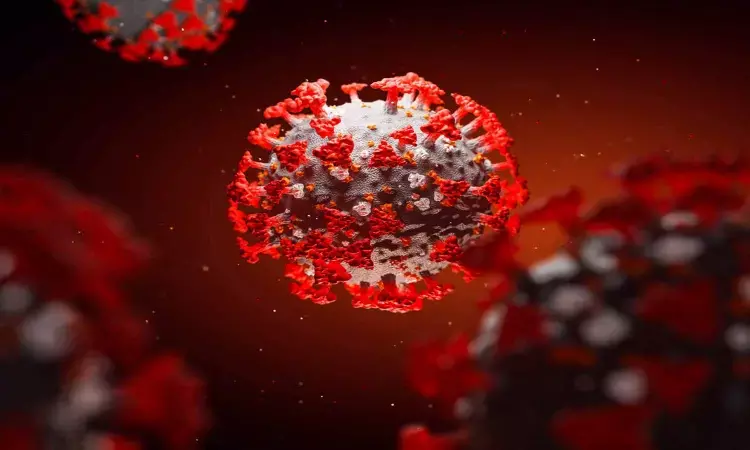- Home
- Medical news & Guidelines
- Anesthesiology
- Cardiology and CTVS
- Critical Care
- Dentistry
- Dermatology
- Diabetes and Endocrinology
- ENT
- Gastroenterology
- Medicine
- Nephrology
- Neurology
- Obstretics-Gynaecology
- Oncology
- Ophthalmology
- Orthopaedics
- Pediatrics-Neonatology
- Psychiatry
- Pulmonology
- Radiology
- Surgery
- Urology
- Laboratory Medicine
- Diet
- Nursing
- Paramedical
- Physiotherapy
- Health news
- Fact Check
- Bone Health Fact Check
- Brain Health Fact Check
- Cancer Related Fact Check
- Child Care Fact Check
- Dental and oral health fact check
- Diabetes and metabolic health fact check
- Diet and Nutrition Fact Check
- Eye and ENT Care Fact Check
- Fitness fact check
- Gut health fact check
- Heart health fact check
- Kidney health fact check
- Medical education fact check
- Men's health fact check
- Respiratory fact check
- Skin and hair care fact check
- Vaccine and Immunization fact check
- Women's health fact check
- AYUSH
- State News
- Andaman and Nicobar Islands
- Andhra Pradesh
- Arunachal Pradesh
- Assam
- Bihar
- Chandigarh
- Chattisgarh
- Dadra and Nagar Haveli
- Daman and Diu
- Delhi
- Goa
- Gujarat
- Haryana
- Himachal Pradesh
- Jammu & Kashmir
- Jharkhand
- Karnataka
- Kerala
- Ladakh
- Lakshadweep
- Madhya Pradesh
- Maharashtra
- Manipur
- Meghalaya
- Mizoram
- Nagaland
- Odisha
- Puducherry
- Punjab
- Rajasthan
- Sikkim
- Tamil Nadu
- Telangana
- Tripura
- Uttar Pradesh
- Uttrakhand
- West Bengal
- Medical Education
- Industry
Diabetes may set in as acute complication of COVID-19, indicates study

A research team involving the Cluster of Excellence PMI has shown that Diabetes may set in as acute complication of COVID-19.
The COVID-19 virus can also damage pancreas in addition to other tissues which may lead to diabetes. COVID-19 enters human cells via angiotensin-converting enzyme 2 (ACE2), a transmembrane glycoprotein with proteolytic activity also found in human pancreatic β-cells, suggesting that COVID-19 might alter pancreatic β-cell function and impair insulin secretion.
The researchers have reported a case of Autoantibody-negative insulin-dependent diabetes mellitus after SARS-CoV-2 infection which has been published in the journal Nature Metabolism.
Their report indicates that diabetologists should be aware of the possibility of insulin-dependent diabetes as an acute complication in patients infected with SARS-CoV-2.
The COVID-19 virus can penetrate many different body cells as shown in multiple research papers published in recent weeks.COVID-19, might negatively affect pancreatic function, perhaps through direct cytolytic effects of the virus on β-cells.
Thus, not only can the function of the respiratory tract and the lungs be severely disrupted, but also numerous other organs. The SARS-CoV-2 virus can also penetrate the so-called beta cells in the pancreas and damage them, as a research team involving the Cluster of Excellence "Precision Medicine in Chronic Inflammation" has now observed for the first time. These cells are responsible for producing the insulin required for a healthy metabolism. A SARS-CoV-2 infection can apparently disrupt this function, which as a result leads to diabetes.
The publication is an initial description of insulin deficiency diabetes after a COVID-19 illness, based on an observed case. "A 19-year-old patient came to us in the clinic with newly-developed severe diabetes with insulin deficiency. It could be shown that he apparently had experienced a SARS-CoV-2 infection a few weeks before," reported Laudes, who is also a member at the steering committee of the Cluster of Excellence "Precision Medicine in Chronic Inflammation" (PMI). "Such an insulin deficiency diabetes, i.e. type 1 diabetes, is usually triggered by an autoimmune response, in which the immune system incorrectly identifies the beta cells in the pancreas as foreign and attacks them. But this autoimmune response was not present in this patient. We assume that here, the SARS-CoV-2 virus itself attacked the beta cells," continued Laudes. This also fits with the fact that the beta cells possess a crucial receptor: the ACE2 receptor. The SARS-CoV-2 virus can specifically bind with this receptor. The receptor is also used by the virus as an entry point into the other body cells which it attacks.
The lead author of the publication is the medical doctor and early career researcher Dr. Tim Hollstein, who only joined the department of Professor Laudes at the beginning of this year, after a research stay at the National Institute of Health (NIH) in the USA. "I am delighted that Dr. Hollstein could make such an important observation as a young early career researcher. This newly-discovered metabolic disease demonstrates how important a detailed clinical and laboratory chemical characterization of COVID-19 can be for patients at a university endocrinological center," said Laudes.
Under the leadership of cluster spokesperson Professor Stefan Schreiber, the UKSH is also conducting a long-term follow-up study into COVID-19 patients under the name "COVIDOM", in which all persons reported as infected in Schleswig-Holstein will be invited to participate. "This success of Professor Laudes and his team underlines the importance of accurate follow-up observation after COVID-19. We are certain that as a result of this disease, even more health-relevant metabolic problems can arise," said PMI spokesperson Professor Stefan Schreiber, head of "COVIDOM" and director at the Department of Internal Medicine I at the UKSH, Campus Kiel.
For further reference log on to:
Tim Hollstein et al. Autoantibody-negative insulin-dependent diabetes mellitus after SARS-CoV-2 infection: a case report, Nature Metabolism (2020). DOI: 10.1038/s42255-020-00281-8
Dr Kamal Kant Kohli-MBBS, DTCD- a chest specialist with more than 30 years of practice and a flair for writing clinical articles, Dr Kamal Kant Kohli joined Medical Dialogues as a Chief Editor of Medical News. Besides writing articles, as an editor, he proofreads and verifies all the medical content published on Medical Dialogues including those coming from journals, studies,medical conferences,guidelines etc. Email: drkohli@medicaldialogues.in. Contact no. 011-43720751


